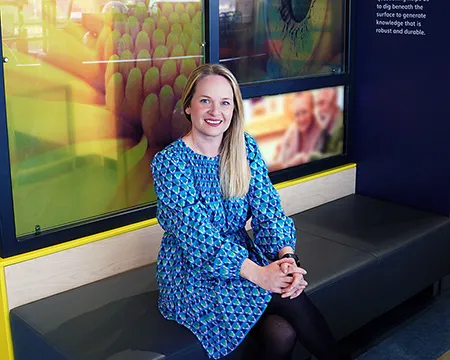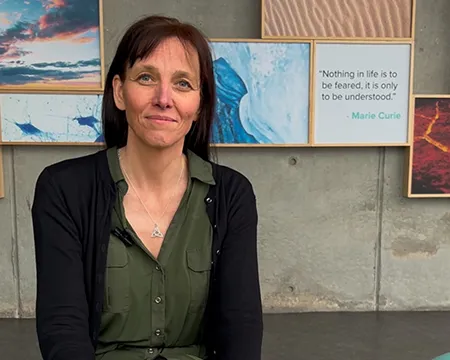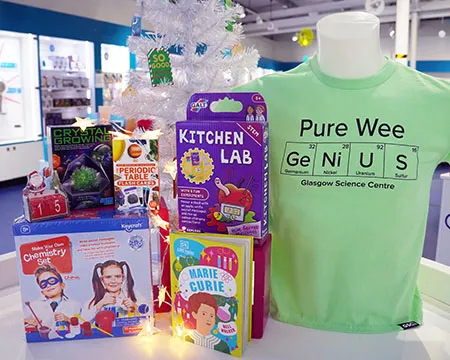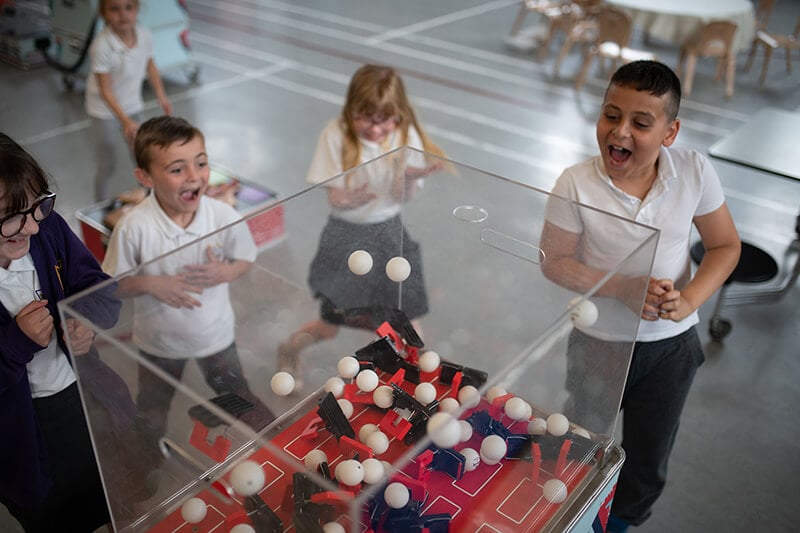Inside the Planetarium: A Conversation with Hayden
As part of National Astronomy Week, we’re shining a spotlight on the incredible team who bring the Universe to life in our Planetarium. We sat down with Hayden, one of our expert presenters, to hear about his journey into astronomy, his favourite space facts, and what makes the planetarium such a unique place to work.
How did you become a planetarium presenter?
I’ve been at The Planetarium at Glasgow Science Centre for 18 months but have worked in astronomy communication for nearly a decade. I enjoyed physics and maths at school and have always been fascinated by the planets, so when I went to University, I wanted to study Astrophysics. My favourite part of astronomy was actually looking through telescopes and working in The Planetarium lets me be a guide to the night sky for people.
What do you love most about your job?
I love the energy in The Planetarium during our shows, people are always so excited to explore the Universe. It’s also never cloudy in the dome so we can see the sky from anywhere on Earth without worrying about the weather.
What’s your favourite planet or astronomy fact?
My favourite planets are the mysterious Ice Giants, Uranus and Neptune. They’re so far away that we didn’t even know they existed until a few hundred years ago and we’ve only sent one spacecraft anywhere near them. Yet they’re still home to incredibly violent winds and some of their moons might have liquid oceans under their surfaces.
My favourite astronomy fact is that every star we see when we look up to the night sky is brighter than the Sun. Most stars in the Universe are smaller and fainter than the Sun, but even the closest of those is too dim for us to see.
Why do you think it’s important for young people to learn about space?
Early humans looked to the night sky and used their imaginations to fill the sky with stories. The sky changes so slowly that the patterns they saw are still the ones we see today. I love that looking out at the stars can connect us across history to these ancient astronomers, we still see their sky even though we now know a lot more about it.
By looking out into the Universe, we have managed to figure out that the atoms in our bodies were created inside stars that exploded in supernovae billions of years ago. We are literally made of star stuff.
Space technology also plays an important role in our everyday lives, even if we don’t realise it. We use satellites to communicate with each other and monitor our planet, and the industry of space tourism is growing steadily. Maybe in a few decades, people will be taking holidays on the Moon!
What’s been your most memorable experience working in Glasgow Science Centre’s planetarium?
Tim Peake came to visit with his family when I was on a day off! I was disappointed to miss out on meeting him, but the rest of the team looked after him well.
Next time you visit Glasgow Science Centre, step inside our full-dome planetarium and journey through the Universe with our expert team. Whether you're discovering distant worlds, exploring the night sky, or immersing yourself in one of our spectacular music experiences, there's something for everyone.
Check out what’s coming up soon. From family-friendly shows like Space Explorers to stunning visual journeys like Planets 360 and immersive music experiences such as Queen Heaven, the cosmos is waiting...






